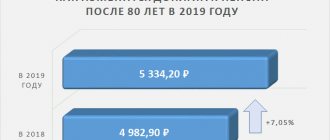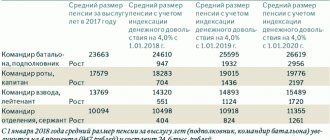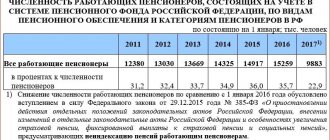Employees of government agencies represent a separate category of citizens. That is why additional payments are provided for them, in addition to the specialist’s tariff salary.
Civil servants are citizens whose official activity is to ensure the implementation of legislation on the territory of Russia or individual regions of the country. This category of citizens refers to employees of executive and law enforcement agencies.
Financing of civil servants includes his monthly salary according to the position held, the monthly salary according to the class rank assigned to the employee, as well as a number of additional payments of another kind, the purpose of which can be regulated:
- length of service;
- special conditions of service;
- interaction with data that contains state secrets.
In addition, civil servants can count on all kinds of bonuses for the performance of important tasks, as well as a one-time payment, taking into account the provision of planned paid leave and financial assistance included in the personal pension program for civil government employees.
The size of salaries for the position and class rank, as well as monthly financial incentives in the form of an allowance for civil servants, is established by a decree of the mayor of Moscow.
In addition, salaries for civil servants are indexed annually, which is enshrined in the Moscow city law on the city budget.
Pension provision for federal civil servants
Civil servant pensions are payments provided for long-term work, filling positions in the federal civil service. The parameters of pension benefits depend on the length of stay in the civil service.
Federal employees have the right to receive benefits established by 3 legal acts:
- Law “On State Pension Provision in the Russian Federation” No. 166-FZ of December 15, 2001.
- Law “On State Civil Service” No. 79-FZ of July 27, 2004.
- Law “On Insurance Pensions” No. 400-FZ dated December 28, 2013.
Download for viewing and printing:
Federal Law “On the State Civil Service of the Russian Federation” dated July 27, 2004 N 79-FZ (latest edition)
Federal Law of December 15, 2001 N 166-FZ, as amended. dated 07/03/2016) “On state pension provision in the Russian Federation”, as amended. and additional, intro. in force from 01/01/2017
Federal Law of December 28, 2013 N 400-FZ, as amended. dated 12/19/2016 “On insurance pensions”
What kind of pension do people's artists of Russia receive?
The pension of creative workers itself is formed on the same basis as for other citizens of our country. The terms of appointment and the procedure for paying material support to artists are regulated by current federal legislation , which determines the procedure for assigning insurance-type pensions.
Thus, the pension rights of creative workers are formed based on the amount of insurance premiums paid for them by employers. Contributions are converted into pension points, the total of which constitutes the individual pension coefficient (IPC).
The value of the IPC directly affects both the size of the pension provision and the possibility of assigning a salary itself. It should be noted that there is a minimum IPC parameter for processing payments, which increases every year.
Reference! In 2020, only those citizens whose IPC is at least 18.6 can apply for payments. Every year this figure grows by 2.4 points. At the end of the pension reform, the minimum IPC for assigning payments will be at least 30.
The pension itself consists of two parts:
- Fixed payment . Its size does not depend on length of service and earnings, and is the same for all pensioners. The amount of this payment in 2020 is 5,686.25 rubles.
- Insurance part. Its size directly depends on the volume of accumulated pension rights, expressed in the value of the IPC. In practice, it is calculated as the product of the number of points and the cost of one of them.
- Allowances. In cases provided for by law, citizens may receive additional supplements to material payments. For example, creative workers, working and retired, living in areas with an unfavorable climate are entitled to an additional regional coefficient.
It is also useful to read: Pension of a ballerina in Russia
Assignment of benefits to federal employees
People have the right to such security only under certain circumstances (death, disability due to health or due to old age).
Service pensions for civil servants are established in the presence of the following conditions:
- Civil service from 16.5 years (for 2020).
- Resignation for 1 of the following reasons:
- reduction in the number of civil servants or liquidation of government bodies;
- resignation from office due to the person’s resignation;
- reaching the maximum age limit for holding office;
- due to a physical condition that prevents continued service;
- independent dismissal due to departure for a well-deserved rest.
Rights to state support arise for citizens who have worked for at least 12 months immediately before the payment is issued.
Important! This does not apply to those dismissed from a government agency being liquidated or among those being laid off.
Age limits for civil servants in 2020
On May 23, 2016, the State Duma of Russia adopted a normative act increasing the age limit for civil servants to retire.
The law came into force on January 1, 2017. Retirement age:
- 65 years for men.
- 63 years for women.
Raising the age limit applies only to working civil servants.
Upon dismissal from a position, a citizen receives the right to an insurance pension (including early retirement), taking into account the previous age criteria. The age limit for retirement will be increased in stages. From 2020, it increases annually by six months until the required level is reached. The maximum will be reached in 2034 for women, and for men already in 2028.
Requirements for old age pension:
| Woman's year of birth | Age | Released | Minimum IPC size (points) | Experience |
| 1963 | 56 | 2019 | 16,2 | 10 |
| 1964 1st half year | 56,5 | 2020 2nd half of the year | 18,6 | 11 |
| 1964 2nd half year | 56,5 | 2021 1st half of the year | 21 | 12 |
| 1965 | 57 | 2022 | 23,4 | 13 |
| 1966 | 58 | 2024 | 28,2 | 15 |
| 1967 | 59 | 2026 | 30 | 15 |
| 1968 | 60 | 2028 | 30 | 15 |
| 1969 | 61 | 2030 | 30 | 15 |
| 1970 | 62 | 2032 | 30 | 15 |
| 1971 | 63 | 2034 | 30 | 15 |
| Man's year of birth | Age | Released | Minimum IPC size (points) | Experience |
| 1958 | 61 | 2019 | 16,2 | 10 |
| 1959 1st half year | 61,5 | 2020 2nd half of the year | 18,6 | 11 |
| 1959 2nd half year | 61,5 | 2021 1st half of the year | 21 | 12 |
| 1960 | 62 | 2022 | 23,4 | 13 |
| 1961 | 63 | 2024 | 28,2 | 15 |
| 1962 | 64 | 2026 | 30 | 15 |
| 1963 | 65 | 2028 | 30 | 15 |
Civil servant Sergeeva I.V. Born 09/01/1963 reached the age of 55 years on September 1, 2020. She will have the right to an insurance pension only upon reaching the age of 56 years, that is, on September 1, 2019.
If Sergeeva decides to leave the civil service on September 1, 2020 or move to a job not related to the civil service, then the right to an old-age pension will remain with her as of August 1, 2018.
To acquire a service state pension, you must develop special experience.
| Year of assignment of long-service pension | Length of service required to assign a long-service pension in the relevant year |
| 2019 | 16 years 6 months |
| 2020 | 17 years |
| 2021 | 17 years 6 months |
| 2022 | 18 years |
| 2023 | 18 years 6 months |
| 2024 | 19 years |
| 2025 | 19 years 6 months |
| 2026 and beyond | 20 years |
The government sees certain advantages in this step:
- maintaining qualified personnel, who are not easy to recruit due to the constant decline in the working-age population.
- significant savings in the budget.
Calculation of the term of civil service
The civil service period is the summed duration of labor and activity that is taken into account when employees become eligible for such payments and when calculating the parameters of benefits .
Civil service experience includes work:
- in positions of the federal civil service;
- in positions determined by the President of the Russian Federation.
If a legal benefit requires work of some duration, it includes work and other socially useful activities that count towards the required insurance period.
Amounts of benefits
The volume of government subsidies is determined by Art. 14 FZ-166. Such persons are given a state allowance for working 16.5 years (in 2020) at 45% of the average monthly pay of a federal employee, taking into account:
- age (disability) insurance;
- fixed (basic) payments to the insurance pension;
- growth determined by law.
Attention! The service pension increases by 3% of the average monthly pay for each year of civil service over 16.5 years.
Calculation of benefits volumes
The procedure for calculating the parameters of service record is defined in Art.
14 FZ-166: P = (45% SZ - SP) + 3% SZ × St,
Where:
- P—volume of pension service;
- SZ - average wage;
- SP - the amount of disability/age insurance coverage and fixed payments;
- St – more than 16.5 years of experience.
The general parameters of service support and age/disability insurance pension, fixed payments to pension and the increase in fixed payments cannot be more than 75% of the average monthly payment of a civil servant established by Art. 21 FZ-166.
If the duration of service is sufficient to apply for benefits, then it is calculated on the basis of the average pay for the last service year.
Increase in benefits
Northerners and people living in areas with similar climates are awarded an age pension until the period specified in the law.
Such people are provided with increased fixed payments to their insurance pension by the corresponding regional coefficient established by the Government of the Russian Federation, depending on their place of residence, for the entire duration of their stay in this area.
Important! If you change your place of residence, the amount of social security benefits will be calculated without such coefficients.
Concept of long service pension
Long service pensions are an area of state pension provision.
From the general definition of the concept of a pension under state pension provision, we can highlight the provisions relating to a long-service pension and formulate the following definition of this type of pension: a long-service pension is a monthly cash payment from the federal budget, which is provided to citizens in order to compensate for lost earnings ( monetary allowance) in connection with the termination of public service or other long-term professional activity in the presence of length of service established by law.
Thus, at its core, a long-service pension is associated with public service. Federal Law No. 58-FZ of May 27, 2003 “On the Public Service System of the Russian Federation” (hereinafter referred to as the Law on the Public Service System) defines the following types of public service:
- state civil service;
- military service;
- law enforcement service.
Military and law enforcement service is a federal public service. The state civil service is carried out at two levels - federal and regional, therefore the federal state civil service and the state civil service of the constituent entities of the Russian Federation are distinguished.
The specific grounds provided for by the Law on State Pensions in terms of long-service pensions allow us to clarify the general definition in relation to this Law: a long-service pension under state pensions is a monthly cash payment that is provided to citizens in order to compensate them for their earnings (income ), lost due to the termination of the federal state civil service upon reaching the established length of service upon retirement due to old age (disability), or in order to compensate for lost earnings (income) to citizens from among the cosmonauts or from among the flight test personnel in connection with retirement for long service.
The Law on the Civil Service System provides for the formation of a civil service system on uniform principles, and in terms of pension provision, the adoption of a federal law on state pension provision for citizens of the Russian Federation who served in public service and their families. Until now, long-service pensions have been assigned on the basis of the norms of different laws, which contain more differences related to the assignment of these pensions than general provisions that determine their unity.
A similar provision is contained in the Law on the State Civil Service, but in relation to pensions for state civil servants. This Law contains general principles of pension provision for state civil servants and indicates the need to implement uniform approaches in establishing pensions for these individuals.
Pension provision for state civil servants of the constituent entities of the Russian Federation is carried out on the basis of laws and other regulatory legal acts of the constituent entities of the Russian Federation at the expense of funds from the budgets of the constituent entities of the Russian Federation.
Long service pensions are often included in the so-called privileged pension system. Indeed, these pensions, as a rule, provide a higher level of pension coverage, and the costs of their payment are borne by the federal budget - a financial source that is generated from general tax revenues.
Federal public service is a type of professional activity.
Pensions for long service are established in connection with the long-term implementation of this activity: for state civil servants - at least 15 years; for persons who have served in the military and other equivalent service, as a general rule - at least 20 years, in case of dismissal from military service for certain reasons - at least 12.5 years; civil servants of law enforcement agencies - according to the standards established for contract military personnel.
Pension provision in connection with the long-term implementation of any professional activity should be carried out within the framework of professional pension systems.
The civil service has specifics, which are determined by the need to carry out important government functions or ensure the activities of government and management bodies. In this regard, the specifics of pension provision for civil servants may be established. But in general, they should be based on the basic principles of constructing professional pension systems and taking into account one indispensable requirement: a larger volume of rights should entail a larger volume of responsibilities and encumbrances, including those related to pension provision. Moreover, this requirement should be applied generally to the entire pension system. This could be, for example, additional insurance premiums paid by government employees, or some other form.
Since 2010, the rules governing long-service pensions for citizens among cosmonauts and flight test personnel have been included in the Law on State Pension Security. Previously, these relations were regulated on the basis of by-laws using separate provisions of the Law on State Pensions (1990), which has already lost force.
The inclusion of these norms, which were in effect within the framework of by-laws, into the Law on State Pension Security not only did not contribute to the streamlining of the regulatory regulation of long-service pensions, but, on the contrary, made the legal regulation of this type of pensions even more amorphous and heterogeneous.
It can be stated that at the present stage there is no unified system of pensions for long service. Even within the framework of one law - the Law on State Pension Provision - these pensions are characterized by different approaches to establishing the conditions for assigning pensions for long service and the procedure for calculating their amounts.
At the same time, it is still possible to indicate several points of contact in the legal regulation of relations regarding pension provision for the length of service of the above-mentioned persons.
Firstly, specific types of work, positions, taking into account which this type of pension is assigned, as well as the rules for calculating length of service, are essential for the establishment of pensions for length of service. The corresponding lists of positions and rules for calculating periods of work (length of service) are approved by the Government of the Russian Federation. The content of these lists and the rules (procedure) for calculating special length of service (length of service), which gives the right to a pension for long service, differ. These features depend on the categories of persons exercising their right to the specified pension.
Secondly, the long-service pension is not paid during the period of work in positions that give the right to the specified pension. For federal civil servants, this restriction is also associated with the performance of certain other types of work (filling a government position in the Russian Federation, a state position in a constituent entity of the Russian Federation, a municipal position filled on a permanent basis, a municipal service position, etc.). After dismissal from the relevant positions, the payment of the previously assigned long-service pension is restored.
How is a pension indexed?
The accrual of service state support, the recalculation of its parameters and the transition from the 1st formation to another are carried out in an application manner. This occurs regardless of the time after the emergence of powers and without time limits.
The exception is disability social benefits. Recalculation of the amounts of service-related state subsidies is carried out when:
- dynamics of parameters of disability/age payments;
- increasing the length of civil service experience;
- federal increase in wages for employees.
In other situations, there is a transition from the 1st subsidy type to another type of state pension provision.
Attention! Service-related government payments are indexed to the federal increase in wages of federal civil servants in the manner established by the Government of the Russian Federation.
Eligibility for Benefits
Civil servants with an awarded service pension with 15 years of experience, including the periods determined by Part 2 of Art.
19 FZ-400, upon reaching the required age limit, they acquire the age-related security established for the service pension. The total IPC for the working year after the establishment of a service subsidy is also taken into account. After the release of the new law, already in 2020, in order to acquire the corresponding powers, men must be 61 years old, and women - 56. The insurance period includes:
- activities defined by Art. 11 Federal Law;
- as well as work taken into account when calculating the length of service in the civil service for applying for service grants in accordance with Art. 19 FZ-166;
- activities taken into account for the assignment of an age pension, for which a service payment has been established.
Registration of service pension
Without time restrictions, people have the right to apply for registration of this type of payment after the corresponding powers arise.
The application is submitted to the Pension Fund or through the MFC. Serve it:
- personally;
- through an authorized representative;
- by mail.
Download for viewing and printing:
Sample application for a pension
In the latter case, the application period will be considered the day indicated on the postmark at the time it was sent by the applicant. If the application is submitted through the MFC, then the day of application will be considered the day the document was accepted by the MFC staff.
Advice! An application for pension payments can also be submitted to the human resources department at the place of work.
Payment deadlines
The legal period for consideration of a submitted application cannot exceed 10 days from the date of its submission along with a complete set of documentation. If some documents are missing, PF employees notify the applicant about this and provide additional time (up to 3 months) to transfer the remaining documents to the PF. If the applicant for social security meets this deadline, then the pension is assigned from the moment the application is submitted. If there is not enough time, they may assign a pension based on the available documents or suspend the consideration period for another 3 months.
After 40 years of work experience
Recently, rumors have been circulating on the Internet about the possibility of increasing the number of pension points for long work experience. For example, information is provided that additional payment for work experience of more than 35 years gives 1 pension point, and for work duration of more than 40 years - 5 points.
Representatives of the Pension Fund of the Russian Federation denied such information, but noted that an addition to the pension for 40 years of service is possible if a person is awarded the title of Labor Veteran.
A non-working pensioner can receive honorary status only in accordance with regional legislation. At the federal level, the title Hero of Labor is awarded. Each subject has its own requirements for the duration of continuous work. The amount of additional payment for experience also varies. In Moscow, for example, it is 1 thousand rubles.
- Are pensioners entitled to sanatorium-resort treatment - rights and benefits
- Which tourists will be able to return money for a holiday in Russia?
- 5 best drug rehabilitation centers









